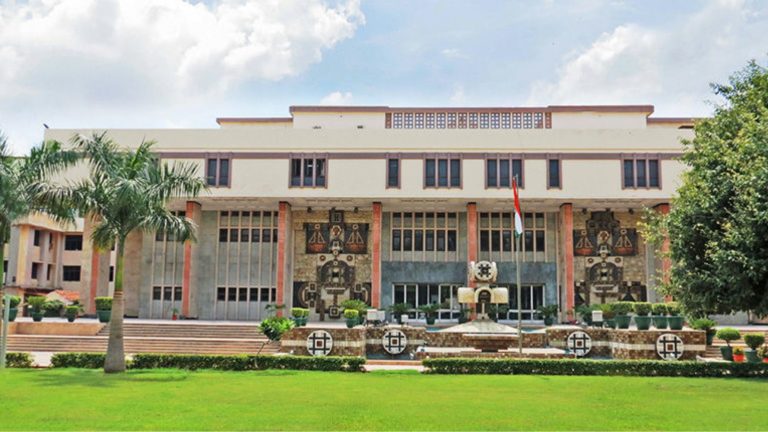The Delhi High Court has ruled that the scope of Sexual Harassment of Women at Workplace (Prevention, Prohibition and Redressal) Act, 2013 or PoSH Act is not limited to cases where a woman employee is sexually harassed by another employee working in her own office or department but also extends to cases where the delinquent employee is employed elsewhere.
Analyzing the statute and its objectives, a vacation bench of Justice C Hari Shankar and Justice Manoj Jain observed:
“Each and every one of these objectives is, conspicuously, “harasser-neutral”. In an era in which – one has to say it, as one sees it every day even in the Court – women are equalling, if not outnumbering, men in professional achievements, there can be no compromise on any of these objectives.”
The bench added that any interpretation of the enactment which “downplays or impedes” the complete achievement and implementation of its objectives has to be “firmly eschewed.”
“Equalizing of the sexes in every aspect of life is, therefore, a constitutional imperative. The working environment is required to be as safe and secure for women, as it is for men. Even an apprehension, by a woman, that her safety might be compromised or endangered in the workplace is, therefore, abhorrent to our constitutional ethos,” the bench said.
It added: “There is absolutely nothing, in the SHW Act, which limits its scope only to cases where a woman employee is sexually harassed by another employee working in her own office, and excepts its application where the delinquent employee is employed elsewhere.”
The court was hearing a plea moved a 2010 batch IRS officer accused of sexually harassing an officer in a different department i.e. Department of Food and Public Distribution of Union Ministry of Consumer and Public Distribution.
The woman employee moved a complaint before the Internal Complaints Committee of her own department after which the officer received a meeting notice from the ICC asking him to appear. However, the IRS officer moved Central Administrative Tribunal and questioned the jurisdiction of the ICC to examine the complaint of the woman employee.
The Tribunal dismissed the officer’s case, compelling him to move before the High Court. Senior Advocate Arun Bharadwaj appearing for the petitioner officer contended that one has to be sexually harassed by a colleague in one’s own department for the Sexual Harassment of Women at Workplace Act to apply.
It was the petitioner officer’s case that ICC of one department cannot conduct an inquiry under the Act on a complaint by its officer against an employee who belongs to another department as he would not be within the disciplinary control of the department where the complainant is working.
The court said such an interpretation, as contended by the petitioner officer, would strike at the very root of the Sexual Harassment at Workplace Act and its ethos and philosophy.
“That said, however, there is some force in Mr Bharadwaj’s contention that the Court cannot rewrite the statute, or provide casus omissus and, if the SHW Act cannot be so read as to protect a woman working in one department of the Government from harassment by an officer or employee of another department, the Court may have to defer to the statute,” the court said.
The bench also observed that the Act does not insulate from action, those men, who sexually harass women in offices, other than those in which they are themselves working.
“Having read Section 11(1), we are in agreement with the learned Tribunal in its finding that there is nothing in the said provision which would restrict its application only to cases where the respondent i.e., the officer against whom sexual harassment is being alleged, is the employee of the department where the complainant is working,” the court said.
It added: “Thus seen, and given the width of the definition of employer in Section 2(m), we are of the considered opinion that, in order to make the provisions of the SHW Act meaningful and applicable even in a case where the alleged perpetrator of sexual harassment is an employee of another department, the definition of employer under Section 2(g)(i) of the SHW Act has to be read as including the employer of the department where the alleged perpetrator of sexual harassment is working.”
Upholding the impugned order passed by the Tribunal, the court dismissed the officer’s plea in limine. It also directed that hearing before the ICC shall take place on July 04.
Title: DR SOHAIL MALIK v. UNION OF INDIA & ANR.
Stay connected with us on social media platform for instant update click here to join our LinkedIn, Twitter & Facebook



































